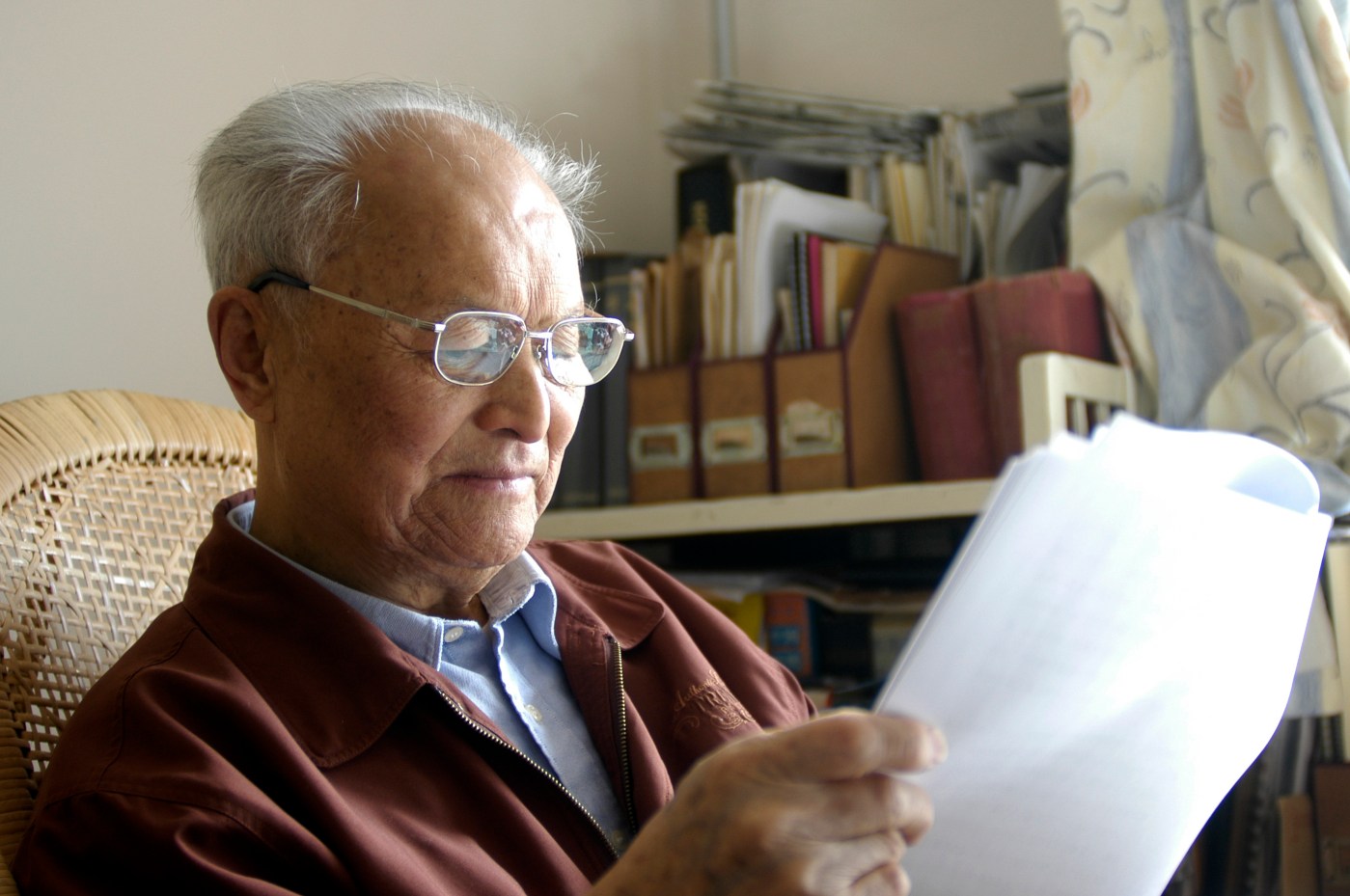Protected under lock and key at Stanford University, the personal diary of a prominent Chinese political official offers a rare inside look at eight tumultuous decades of Communist Party rule, recounting an unvarnished version of history at a time when the nation’s government is seeking to sanitize its past.
But the late Li Rui’s 94-year-old widow says the diary belongs to her, not Stanford. She’s filed a suit against Stanford, demanding its return to her in China.
“The case has enormous significance,” said Orville Schell, director of the Center on U.S.-China Relations at the Asia Society. “In chapter and verse, Li Rui documented the myriad ways in which the Chinese Communist Party was very savage, inequitable and unjust.”
The diaries of former Chinese official Li Rui, a prominent critic of the Chinese Communist Party, are at the center of a U.S. legal battle. Stanford University assets that the diaries should remain at its Hoover Institution, where his daughter donated them, and not be returned to his elderly widow, who has been accused of acting as a front for Chinese authorities.(Hoover Institution)
The fight over its fate played out in an Oakland federal courtroom this week, pitting Stanford’s prestigious Hoover Institution Library & Archives against Li’s second wife and widow, Zhang Yuzhen, who the university alleges is a front for China’s powerful Communist Party.
It’s more than just an inheritance dispute. Historians fear that if the diary is returned to China, the government may alter it to rewrite the past. The trial before U.S. District Court Judge Jon Tigar ends on Thursday, and a decision will come later.
The real opponent, Stanford attorneys say, is not Li’s elderly widow, who likely has little income, but the Chinese government bankrolling the case.
“For political control, it’s very important to have a perfect version of history presented to the Chinese public,” said Perry Link, a leading American China scholar at UC Riverside and an emeritus professor of East Asian studies at Princeton. “What this diary does is undermine that perfect picture.”
The handwritten diary and 40 boxes of other materials — letters, meeting minutes, work notes, poetry and photographs — document the life of Li, a top official and personal secretary to longtime party leader Mao Zedong. He died in China in 2019 at the age of 101.
They were donated by his daughter, Nanyang Li, a physicist and vocal critic of the Chinese Communist Party who lives in the East Bay. According to court filings, Jiashu Cheng of the Stanford Center at Peking University realized the historical importance of the diaries in 2013 and approached the family about a possible donation. Li feared that the materials would be destroyed by the Party.
With her stepmother’s assistance, Nanyang Li gathered diaries and notebooks, according to court filings. She says she carried the materials out of China to honor her father’s wish that they rest at Stanford’s famed archives, where they would be accessible to international scholars.
Nanyang Li, daughter of former Chinese Communist Party official and critic Li Rui, says that her father wished that his diaries be kept at Stanford’s Hoover Institution as a resource for people seeking to understand the history of modern China. (Hoover Institution)
On the witness stand last week, she tearfully described how she promised her father that she would carry on his legacy. Because the materials were carried to California before her father’s death, they were not part of his estate, she says.
The widow’s lawyers argue that Li never transferred legal ownership of the materials to his daughter from his first marriage.
In legal limbo, the materials are stored in the Archive’s acid-free boxes on floor-to-ceiling shelves in a climate-controlled room to preserve their fragile paper.
The Hoover Archives has long been a place where scholars could come pore over its holdings, devoted to war, peace and revolution in the 20th and 21st centuries. They preserve more than 7,000 collections in about 150 languages about the Cold War, the Russian Revolution and the Soviet Union, World Wars I and II, and various political and ideological movements.
In millions of handwritten Chinese characters, the diary includes much material about Li’s routine daily life from 1946 to 2018, such as the weather or an afternoon swim, according to books about the diaries.
But its richest vein is a repository of his political insights, tracing the arc of China’s messy and nuanced climb from a poor and isolated nation to a repressive global superpower.
Born in 1917, Li was an idealistic young man who joined the throngs of young people devoted to the Chinese Communist Party. A brilliant writer and thinker, he quickly climbed the Party’s ranks. He was hand-picked by Mao to become his personal secretary in 1958.
He was unafraid to criticize the Party as it evolved from a heroic movement in the 1930s and 1940s to a corrupt bureaucracy in the 1960s and 1970s, said Perry.
“All through his life, he was consistent in supporting freedom and human rights,” Perry said.
Li was expelled from the Party and imprisoned in work camps from 1959 to 1978, including eight years in solitary confinement, after criticizing Mao’s disastrous effort to modernize the agricultural sector using communist ideologies, causing a catastrophic famine. Following Mao’s death, the more pragmatic Deng Xiaoping came to power, and Li was reinstated into the Party.
Although his writing was censored, Li continued to document the Party’s abuses and stubbornly press for democracy. From his balcony, he witnessed the brutal 1989 massacre of unarmed pro-democracy protesters in Tiananmen Square scene. His diary describes the event, calling it “Black Weekend” in English.
His daughter made the diary’s donation to Hoover just days before Li’s death, when he was in a coma and safe from possible reprisal.
The case already has been heard once, and Stanford lost. The Chinese court gave the university 30 days to return the materials.
But Stanford says that the proceeding was unfair. The Beijing court blocked the university from presenting evidence in that case, said attorney Mark Litvack of Pillsbury Winthrop Shaw Pittman LLP.
It has sued Zhang in California in return.
Over the past decade, China has sought increasing control over historical narratives to escape responsibility for its past, according to Schell.
China not only silences its own citizens, he said, “but is reaching out around the world to intimidate others from saying, writing, researching and participating in ways that do not reflect kindly on their rule.”
Lawyers for Li’s widow argue Stanford can keep photocopy reprints and scanned files of the diaries, according to a brief filed by attorneys of the law firm Skaggs and Faucette.
But Stanford worries that if it returns donated items under pressure, no one will ever donate again.
The original physical archives are immensely valuable, scholars say. Because digital copies can be altered, the Chinese government could assert, “‘The materials don’t say what you claim they do. We have the originals,’” Perry said.
“An archive that sits in ‘hard copy’ form irrefutably documents what happened in history,” said Schell. “It’s immensely important to keep the record correct.”












